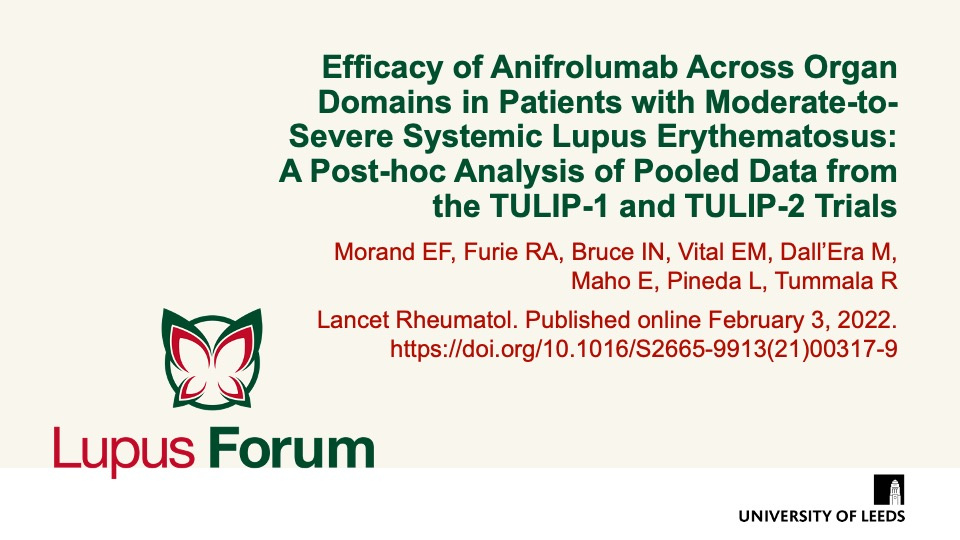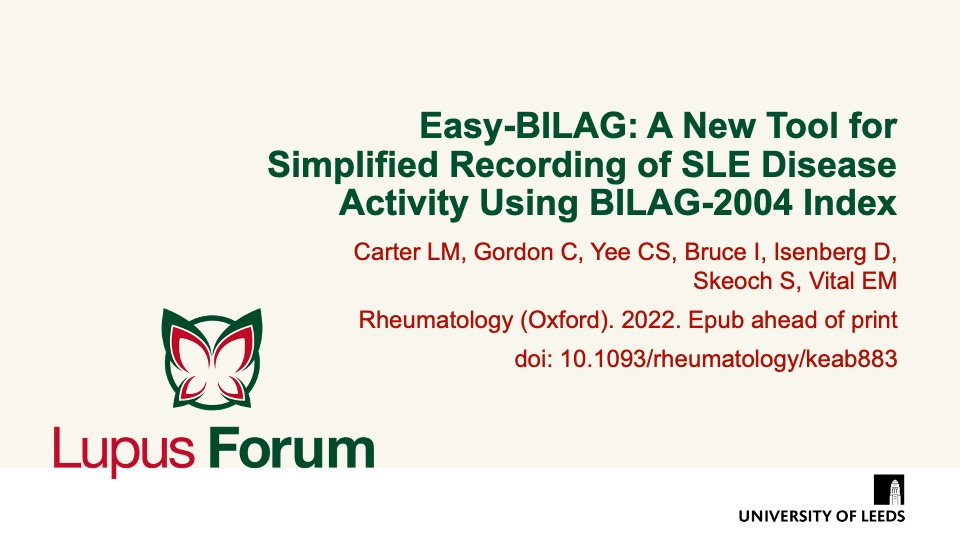Publications
Find coverage of the latest original articles on Lupus, focusing on those with data on therapeutic interventions and those that have clinical impact.
Efficacy of anifrolumab across organ domains in patients with moderate-to-severe systemic lupus erythematosus: a post-hoc analysis of pooled data from the TULIP-1 and TULIP-2 trials
Lancet Rheumatol. Published online February 3, 2022
Across two pivotal phase 3 trials (TULIP-1 and TULIP-2), anifrolumab treatment improved systemic lupus erythematosus (SLE) disease activity across multiple organ domains, compared with placebo.
Keywords:
EULAR recommendations for cardiovascular risk management in rheumatic and musculoskeletal diseases, including systemic lupus erythematosus and antiphospholipid syndrome
Ann Rheum Dis. 2022. Epub ahead of print doi: 10.1136/annrheumdis-2021-221733
EULAR recommendations can guide clinical practice and future research for improving cardiovascular risk (CVR) management in rheumatic and musculoskeletal diseases.
Keywords:
Easy-BILAG: a new tool for simplified recording of SLE disease activity using BILAG-2004 index
Rheumatology (Oxford). 2022. Epub ahead of print doi: 10.1093/rheumatology/keab883
Easy-BILAG is a high-accuracy, time-efficient tool for recording BILAG-2004 disease activity in systemic lupus erythematosus (SLE).
Disease activity measurements in SLE are necessary for optimal patient care, treat-to-target approaches and clinical guidelines. However, administrative burden and potential frequency of errors with the current comprehensive disease activity instrument (BILAG-2004) limits its use in routine practice.




